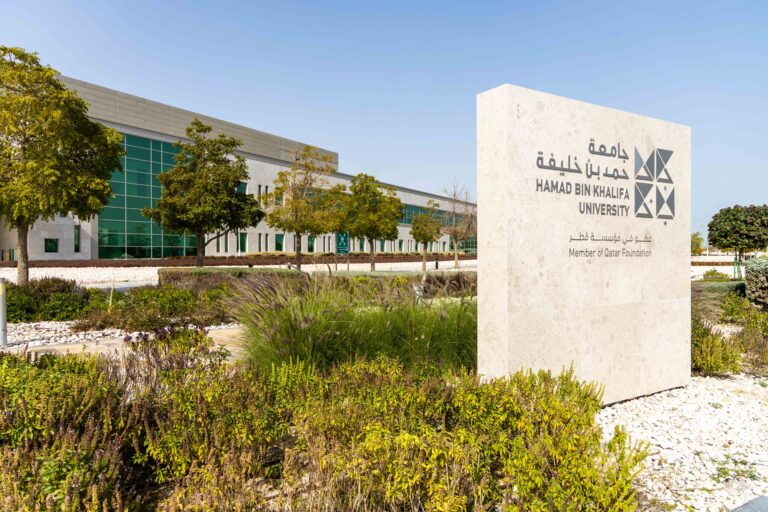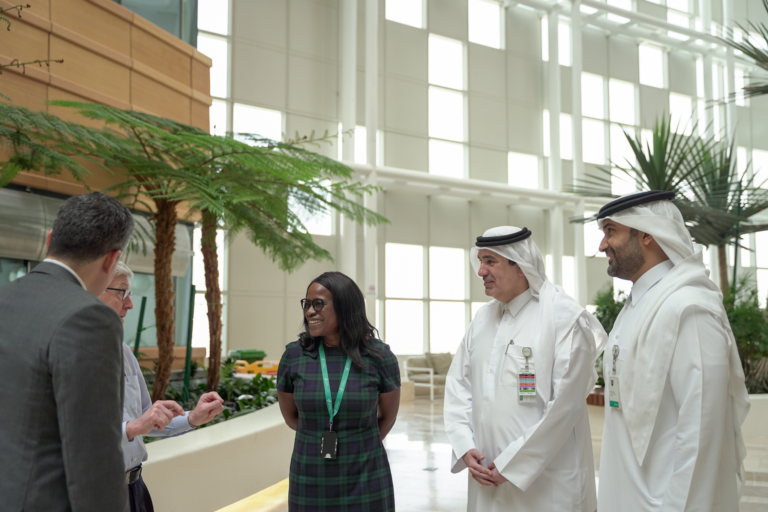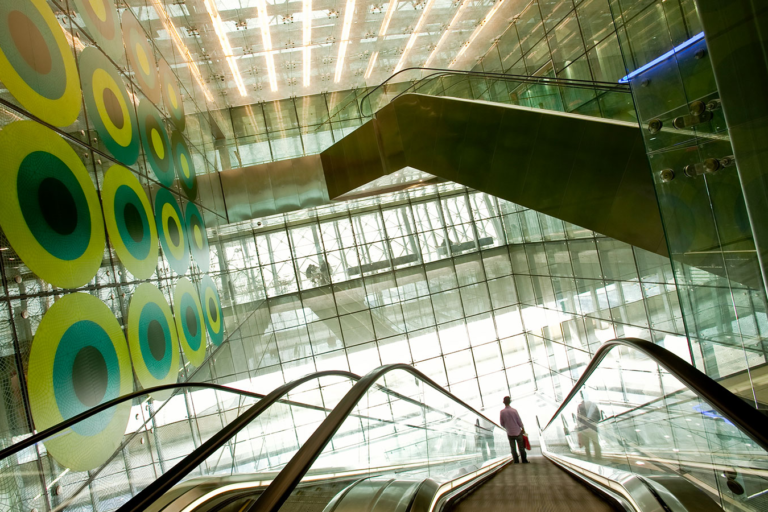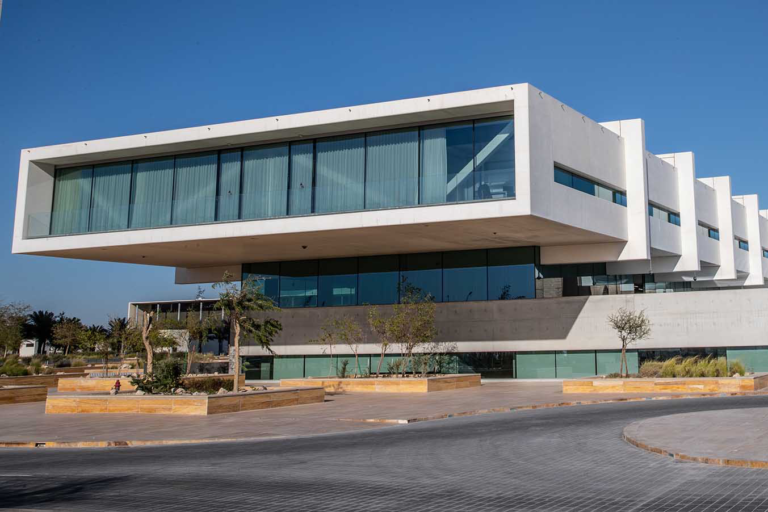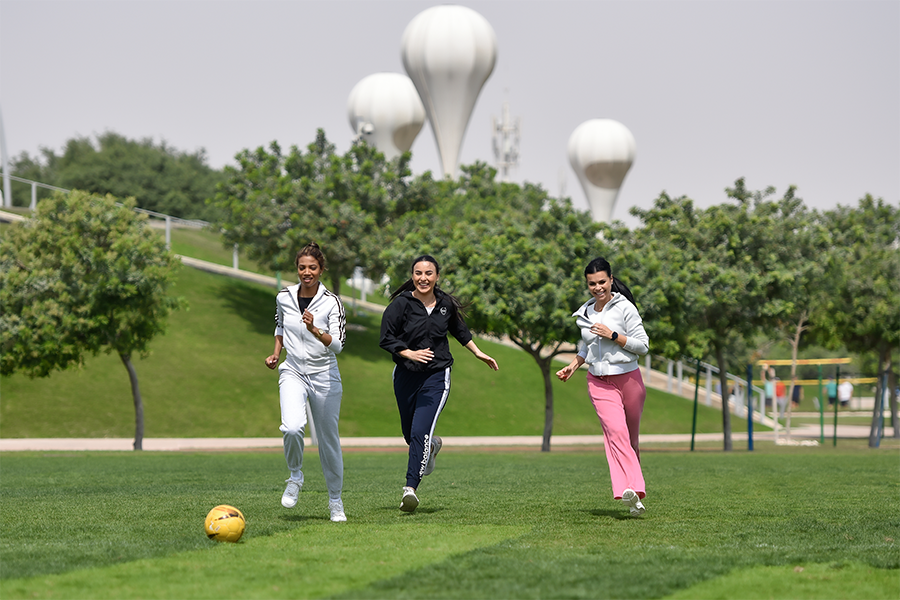
In the realm of global sports, a pioneering initiative emerges from Qatar, where the Qatar Foundation, under the strategic guidance of Chairperson Her Highness Sheikha Moza bint Nasser, is transforming Education City Stadium into a women-focused sports venue. This ambitious project signifies a bold stride towards nurturing an inclusive and dynamic ecosystem for women’s sports.
By challenging established norms and creating a new standard for gender inclusivity, the initiative showcases the collective vision and commitment of Qatar Foundation and its stewards to making a tangible difference in the world of sports.
Alexandra Chalat, executive director of partnerships and strategic alignment at Qatar Foundation, embodies passion and expertise in harnessing sports as a vehicle for social transformation. With a background that spans elite gymnastics, journalism, and significant roles in social impact organizations, Chalat’s career path has been marked by a steadfast dedication to utilizing sports for positive community change. Her journey from the fields of elite sports through the corridors of global sports consultancy underscores a deep-seated belief in the power of sports to address and ameliorate societal challenges.
Joining the visionary team at the Qatar Foundation, Chalat was drawn to the unique opportunity to craft a meaningful legacy from the World Cup, concentrating on areas such as volunteerism, accessibility, and notably, the inclusion of women in sports. Her mission is to provide women in Qatar and the region with the resources and opportunities they need to participate in sports on their own terms and to forge a comprehensive sports culture that champions inclusivity, accessibility, and empowerment for women and girls region-wide.
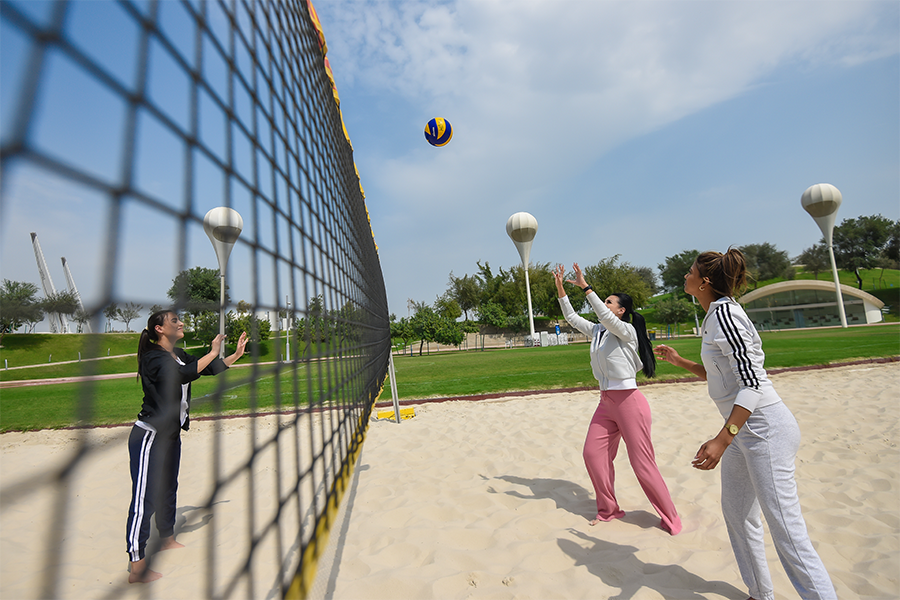
At the heart of this endeavor lies the vision to reinvent Education City Stadium as a beacon for women’s and girls’ sports across the region. Far from simply creating a venue exclusive to women, the initiative is about establishing a supportive ecosystem that encompasses innovative approaches to women’s sports. From fashioning modest sportswear to formulating specialized sports medicine tailored for women, the mission is to dismantle barriers and cultivate an environment conducive to women’s active participation in sports.
This transformative project also involves rethinking the stadium’s infrastructure to ensure it caters to women’s needs, including architectural considerations, childcare facilities, and a family-friendly atmosphere. The objective is to provide a space where women athletes and fans alike feel welcomed and supported.
The project’s collaborative and community-centered ethos is manifest in its partnerships with international entities like the NBA and engagement with inspirational athletes. These partnerships are instrumental in developing pathway programs aimed at nurturing talent and establishing an environment for women’s sports at the grassroots level.
The initiative reflects Qatar Foundation’s and Chalat’s authentic commitment to enhancing the landscape of women’s sports. The transformation of Education City Stadium into a beacon for women’s sports is more than an infrastructural change; it’s a cultural shift towards a more inclusive and equitable sports ecosystem. This visionary project reflects a broader commitment to harnessing the power of sports as a force for good, challenging stereotypes, and inspiring communities around the world. As this initiative unfolds, it promises to redefine the landscape of women’s sports, paving the way for future generations to engage in sports with freedom, dignity, and joy.
Q&A with Alexandra Chalat
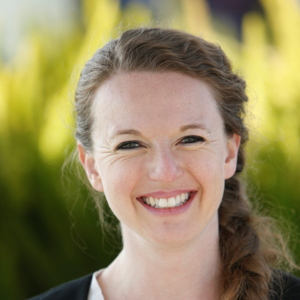
What inspired your transition to Qatar Foundation and the role of Director of World Cup Legacy?
My career has been dedicated to exploring the intersection of sports and social change. The chance to shape a lasting legacy from the World Cup, especially focusing on empowering women and girls through sports, represented a natural progression of my work and passions.
How do you see the transformation of Education City Stadium influencing women’s sports in the region?
We aim to create a comprehensive support system for women’s sports that goes beyond competition to include health, community, and educational aspects. By tailoring the stadium to women’s needs, we’re pioneering a model of inclusivity and empowerment, hoping to inspire women across the region to engage with sports more freely.
What challenges have you encountered in this initiative?
Aligning all aspects of our ambitious vision—securing the right partnerships, developing impactful programs, and designing a venue that caters comprehensively to women’s needs—presents a complex challenge. Yet, it’s a challenge we embrace with enthusiasm and dedication.
How has the initiative been received, both locally and internationally?
The positive feedback has been overwhelming, affirming the global and local community’s recognition of our genuine efforts to empower women through sports. Our nuanced, culturally sensitive approach has been particularly well-received, reflecting our commitment to meaningful, context-specific impact.
How do global initiatives inspire your work, particularly in the context of women’s sports?
In shaping our vision, we draw inspiration from pioneering global initiatives, notably the first professional women’s stadium in Kansas City. Engaging in collaborative discussions with Angie and Chris Long, we’ve exchanged knowledge and ideas that resonate with our objectives. This collaborative spirit, akin to the Kansas City project, reinforces our dedication to championing positive change in women’s sports, demonstrating the universal momentum behind these transformative efforts.
What future objectives and legacies do you aspire to achieve with this project?
Beyond the physical legacy of the stadium, we aim to catalyze a cultural shift towards more inclusive and enthusiastic participation in sports among women.
We hope this project inspires similar initiatives globally, contributing to a broader movement towards gender equality in sports![]()






